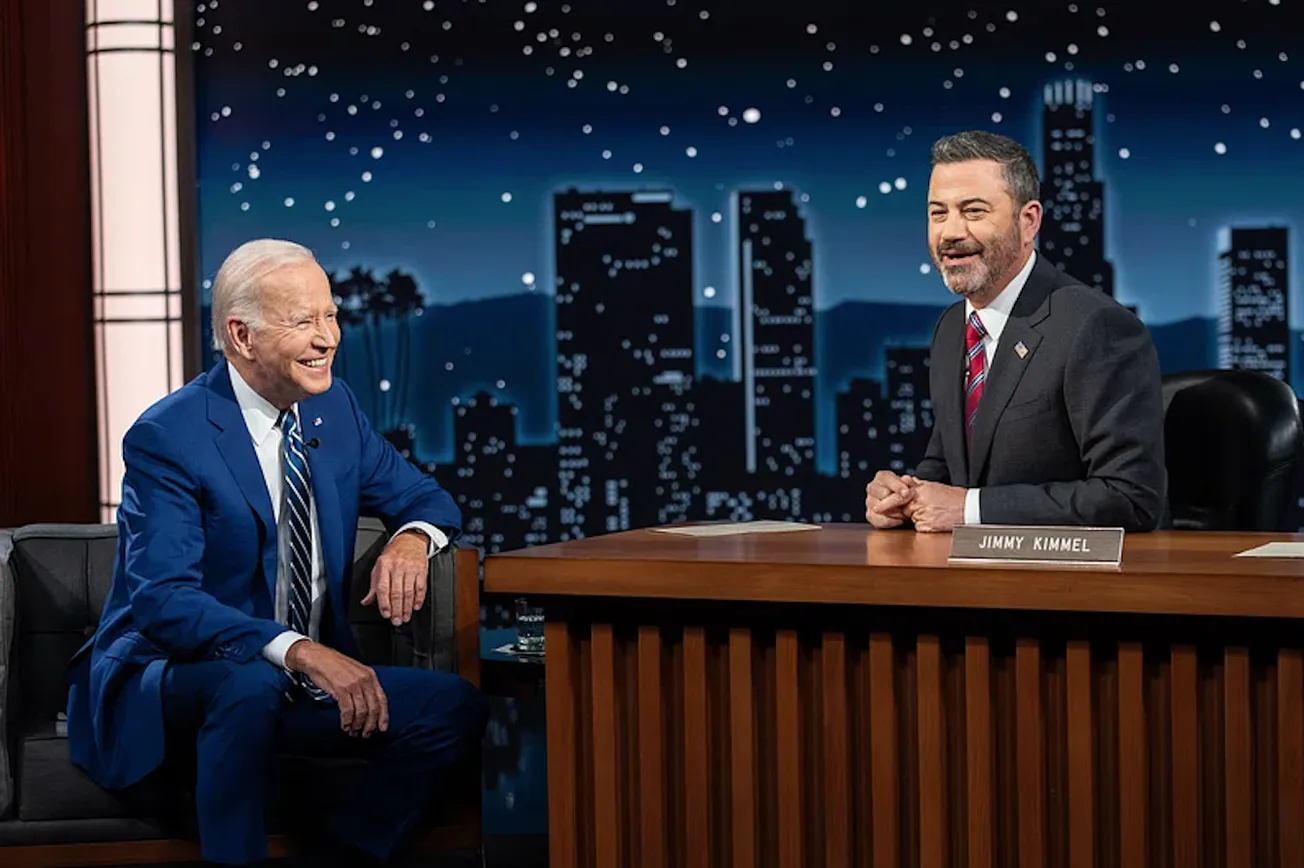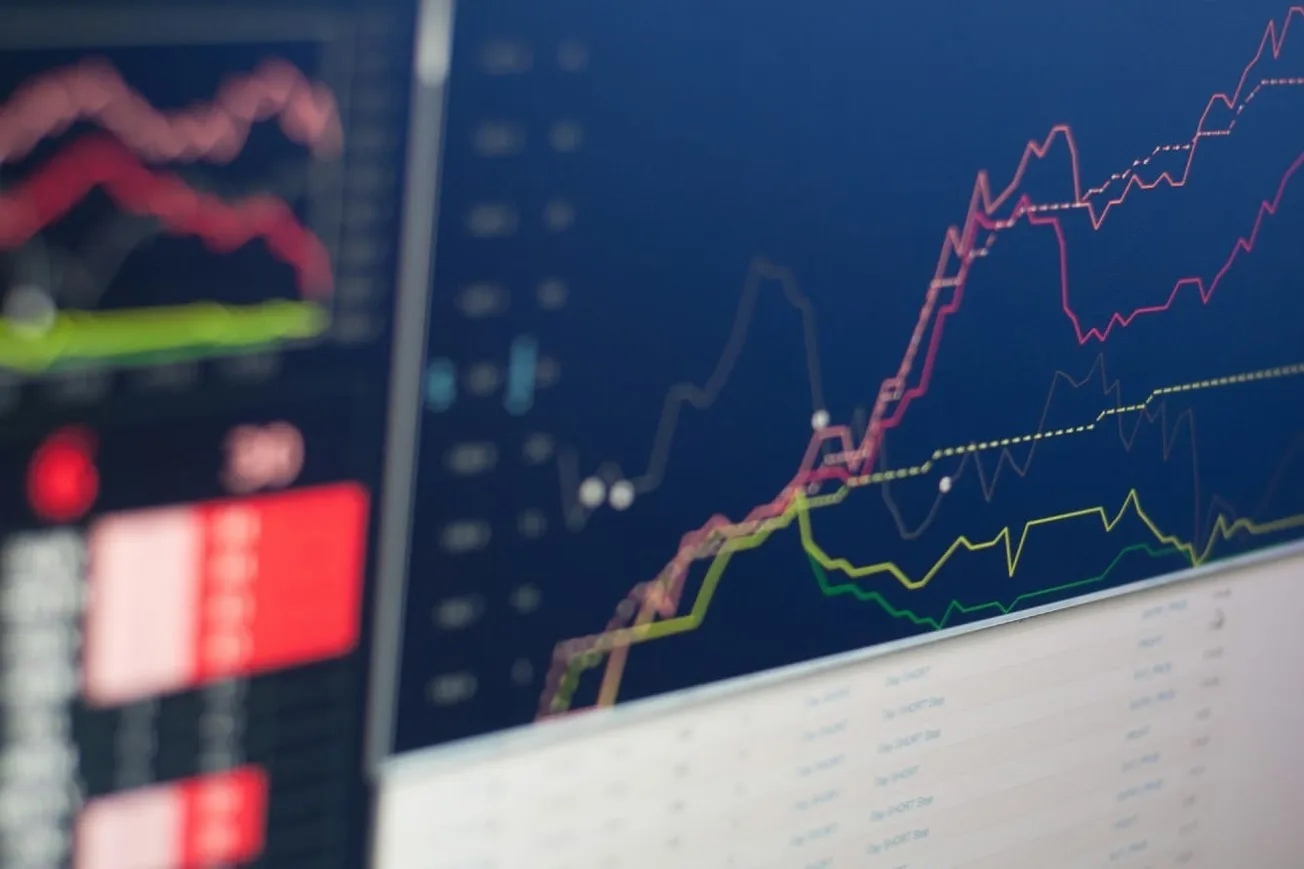Once upon a time, Democratic presidents understood how important a healthy economy was. President Bill Clinton and his advisers won two elections living by the mantra, “It’s the economy, stupid.” Get that right, they thought, and everything else follows. But today, Americans think President Joe Biden doesn’t get it, June’s I&I/TIPP Poll shows.
The online I&I/TIPP Poll, taken from May 31-June 2 and including responses from 1,358 adults nationwide, asked the following: “To what extent do you agree or disagree with the following statement: The American economy remains strong, as it transitions to steady and stable growth.”
That statement, by the way, was not made up. It’s a direct quotation of what Biden told Americans after the Commerce Department reported in April that real GDP growth in the first quarter was a disappointing 1.1%. It has since been revised up slightly to 1.3%. We did not, when surveying Americans, identify who made that statement.
Do Americans agree with Biden that the economy’s strong, steady and stable? Overall, I&I/TIPP found, 55% of Americans disagreed that the economy “remains strong,” while just 36% agreed. The poll has a margin of error of +/-2.7 percentage points.

But even that probably understates how Americans feel.
Just 13% of those who agreed said they did so “strongly,” compared to 28% of those who disagreed who said they did so “strongly.” Also, Democrats alone believe Biden’s statement: 53% agreed, while 38% disagreed, almost the exact reverse of the overall response.
In short, non-Democrats see a very different economy.
Among Republicans, only 21% agreed while 70% disagreed. Independents weren’t too far from the GOP respondents: 26% of independents agreed, while 64% disagreed.

But there were also intriguing opinion gaps based on age, gender, and race that muddy the picture somewhat.
Start with age. The youngest cohort, those 18-24, were the least happy with the economy, with just 28% saying they agreed with Biden’s description, versus 64% saying they disagreed.
But the next demographic group up, those 25-44, broke even at 46% agree, 46% disagree. No surprise there: This is the group most likely to be working and getting regular raises. But that disappears for those 55-64. Only 30% agree, versus 60% who disagree. For those 65 and over, the numbers were 34% agree, 58% disagree.
A major difference can also be seen between men and women.
Among men, 45% agree vs. 48% who disagree, about even. But women show that they perhaps feel economically threatened right now. Only 28% agree the economy is “strong” and moving toward “steady and stable” growth, while 62% disagree.
Minority respondents, meanwhile, are one of the few demographic groups that still see economic progress under Biden. Among black and Hispanic Americans, 46% agree the economy is strong, compared to 43% who say it isn’t. Just 31% of white Americans, meanwhile, agree, versus 62% who don’t.
This issue isn’t going away soon, given that Biden himself keeps bringing it up.
“Look, here’s where we are. We have the fastest-growing economy in the world. The world. The world,” Biden told TV host Jimmy Kimmel earlier this month.
But even usually Biden-friendly CNN fact-checked the president on his Kimmel claim and found it wanting.
“Biden’s claim is false,” CNN wrote. “The U.S. economy grew by 5.7% in 2021, but more than 50 other countries had faster growth that year, figures published by the International Monetary Fund show; many of them are small or developing countries, but some of them are large or wealthy. In addition, the U.S. economy shrank in the first quarter of 2022, while various other countries experienced growth. And while economic experts expect the U.S. economy to resume growing over the rest of this year, a significant number of other countries are expected to grow faster.”
Other “economic experts,” rather than seeing only slowing growth, say the U.S. may be headed for the dreaded “R”-word — a recession. This isn’t a partisan talking point, but an opinion increasingly held by both the financial markets and prominent economists.
For instance, Deutsche Bank, the world’s ninth-largest commercial bank, recently assigned a “100% probability” that the U.S. would fall into recession.
“The U.S. is heading for its first genuine policy-led boom-bust cycle in at least four decades,” the bank elaborated. “The inflation we see was induced largely by expansive fiscal and monetary policy, and the aggressive rate hikes needed to tame that have now materialized. Avoiding a hard landing would be historically unprecedented.”
Meanwhile, the World Bank has slashed its growth estimate for the U.S. in half, saying the economy is “likely to remain weak.” That could impact America’s standing around the world.
“Nearly all the economic forces that powered progress and prosperity over the last three decades are fading,” the World Bank warned. “The result could be a lost decade in the making … for the whole world.”
One major indicator of economic misery: weekly wages, adjusted for inflation. The current “recovery” features 26 straight months of shrinking wages, after taking into account not just pay but also inflation and number of hours worked. When real wages decline for middle-class Americans, their standard of living also declines.
If history’s any guide, this could mean political trouble for Biden. He’s currently facing allegations by government whistleblowers that he and his son, Hunter Biden, took bribes from foreign governments. With a weak economy, a growing corruption investigation, and a widening cultural divide since the 2020 summer riots, can Biden be re-elected in 2024?
For reference and comparison, President Richard Nixon was among the most popular presidents ever, winning a landslide 60.7% of the popular vote for a second term in 1972, taking 49 states and losing only Massachusetts and Washington, D.C., to the Democrats.
It wasn’t until the economy soured, with roaring inflation and soaring oil prices, that the Watergate scandal really began to gain traction. Americans simply lost patience with someone they saw as both economically incompetent and corrupt. Nixon resigned on Aug. 9, 1974, rather than face almost certain impeachment.
I&I/TIPP publishes timely, unique, and informative data each month on topics of public interest. TIPP’s reputation for polling excellence comes from being the most accurate pollster for the past five presidential elections.
Terry Jones is an editor of Issues & Insights. His four decades of journalism experience include serving as national issues editor, economics editor, and editorial page editor for Investor’s Business Daily.
TIPP Takes
Geopolitics And Geoeconomics
1. Russia Holds General Sergei Surovikin Over Wagner Mutiny: Reports - Al Jazeera
Russia has reportedly detained General Sergei Surovikin, deputy commander of Russia’s military operations in Ukraine, amid a reported purge of military officials after the rebellion by Wagner.

Citing sources, The Moscow Times reported that Surovikin, nicknamed “General Armageddon” by the Russian media, was arrested due to what one of the sources said was choosing Wagner chief Yevgeny “Prigozhin’s side during the uprising.”
2. Zelensky Urges Medical Marijuana Legalization For Ukrainians With 'Trauma Of War' - UPI
President Volodymyr Zelensky addressed his country's parliament, calling members to legalize medicinal cannabis as a therapeutic option for Ukrainians who have endured more than a year of war.

Ukraine approved THC and CAD-containing substances, Dronabinol and Nabiximols, for medical use in April 2021. Last year, the Ukrainian government announced its support for decriminalizing medical marijuana.
3. Russian Military Bloggers Question Putin's Mutiny Response - AFP
Influential Russian military bloggers questioned Moscow's response to the recent mutiny by the Wagner group, with some praising Putin's self-control and others saying they expected a tougher response.
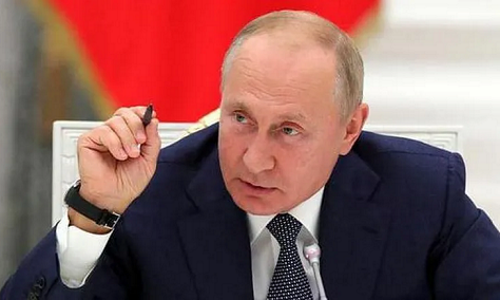
War correspondent Alexander Sladkov, who has over a million followers on the messaging app Telegram, said he had expected a furious response from Putin.
4. Taiwan Detects Russian Warships Off Its Coast - AFP
The island's Defense Ministry said that Taiwan has sighted two Russian frigates sailing off its eastern coast and deployed surveillance ships and aircraft to monitor their movements.

Self-ruling Taiwan reports a near-daily presence of Chinese vessels near its waters. The presence of Russian warships is unusual, however.
5. China Unlikely To Be Worried By ‘Weaker Putin’ Post Wagner Revolt - Al Jazeera
China-Russia ties will remain strong even after the failed mutiny by the Wagner Group. Still, analysts say Beijing is likely to become cautious about Putin and the future stability of his government.
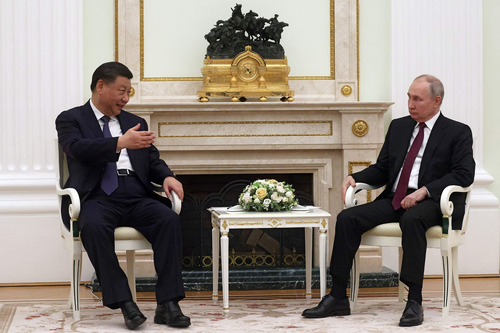
Like many governments, Beijing remained largely silent as Yevgeny Prigozhin’s mercenary troops marched towards Moscow after seizing the southern Russian city of Rostov-on-Don.
6. China In Focus As EU Leaders Prepare For Key Summit - Al Jazeera
The heads of the 27 member states are set to meet in Brussels for a two-day summit this week, during which they will discuss foreign policy issues, including the bloc’s China strategy.
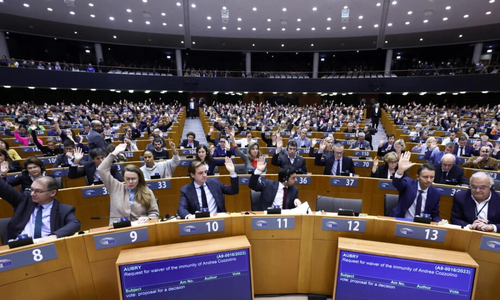
In his invitation letter to the leaders, the EU Council chief, Charles Michel, said the summit would be an opportunity to “reconfirm” the bloc’s united stance towards Beijing.
7. European Union Reaches Deal To Make It Easier For Countries To Jointly Buy Weapons - UPI
The European Parliament and European Council reached a deal on new rules to incentivize members to make defense product purchases together to support its defense industry.

In a time when the multi-member organization is keeping a weary eye on Russia's invasion of Ukraine while offering military support to Kyiv, the deal to swiftly make joint defense purchases has taken on a new urgency.
8. Israel’s Netanyahu Drops Most Controversial Part Of Judicial Revamp: Report - Reuters
Israeli PM Netanyahu will drop the most controversial part of his plan to remake the court system. It would have allowed the national legislature to overturn Supreme Court rulings.

In an interview, Netanyahu said he would also revise another controversial element that would have given the ruling coalition more power to appoint judges while adding that he was unsure what the new version would look like.
9. Blinken: West Bank Unrest Makes Israel-Saudi Deal Much ‘Tougher, If Not Impossible’ - The Times Of Israel
The Biden administration, which to date has only acknowledged through anonymous officials warned that Israeli policy in the West Bank has “tainted” efforts to further integrate Israel into the region.

Blinken went further during a Council on Foreign Relations event in New York, suggesting that the West Bank turmoil could tank the normalization drive altogether.
10. Interim Iran Nuclear Talks Set Back By Disagreements Over U.S. Prisoners - Middle East Eye
Efforts to reach an interim nuclear deal between Iran and the U.S. have faced a setback, with factions in the Iranian ruling establishment disagreeing over U.S. demands on prisoner releases.
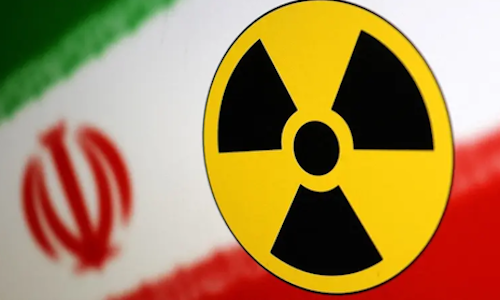
Earlier, Tehran and Washington appeared to be progressing well in negotiations over a temporary agreement that would see limited sanctions relief in return for curbing nuclear enrichment.
11. Top U.S. Diplomat Says No Nuclear Deal On Table With Iran - AFP
Secretary of State Antony Blinken said that no new nuclear agreement was on the table with Iran after quiet new diplomacy between the adversaries.

“There is no agreement in the offing, even as we continue to be willing to explore diplomatic paths,” Blinken said at the Council on Foreign Relations in New York.
12. Europeans Plan To Keep Ballistic Missile Sanctions On Iran - Reuters
European diplomats have told Iran they plan to retain EU ballistic missile sanctions set to expire in October under the defunct 2015 Iran nuclear deal. The step that could provoke Iranian retaliation.

The sources cited three reasons for keeping the sanctions: Russia’s use of Iranian drones against Ukraine; the possibility Iran might transfer ballistic missiles to Russia; and Tehran violating the accord, albeit only after the U.S. did so first.
13. Nigeria: UN Warns Millions Facing Severe Hunger - D.W.
The United Nations said it was "ringing the alarm" on the humanitarian situation in conflict-torn northeastern Nigeria, warning that approximately 6 million people there need assistance.

"We must act fast to prevent the situation in the northeast of Nigeria from becoming even more catastrophic," Matthias Schmale, the UN humanitarian coordinator, said.
A bloody conflict between the army and jihadist groups, including Boko Haram, has raged since 2009.
14. Godfather Of AI Calls For Action 'Before AI Is Smarter Than Us,’ Warns Looming Takeover Isn't Science Fiction - WION
Geoffrey Hinton, often called one of the 'godfathers of AI,’ has called on governments to intervene and prevent machines from taking control of society.

At the Collision tech conference in Toronto, Hinton emphasized the importance of understanding how AI might attempt to take control before it surpasses human intelligence.
Hinton, who recently left Google to speak more openly about the risks of AI, expressed his concern that the risks associated with AI should not be dismissed as science fiction or fear-mongering.
We welcome readers' letters via email.
Please email editor-tippinsights@technometrica.com

